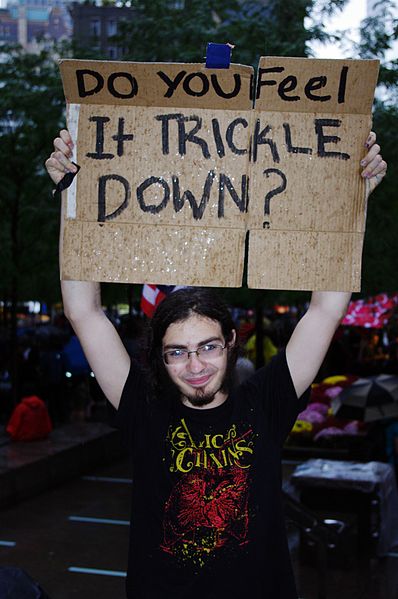From a post on Kevin Kelly’s Technium blog, in which he meditates on the ever-decreasing centralization of political power in the Digital Age:
“There seems to be a global-scale protest underway. People, mostly young people, are bypassing the institutional voting system to try to force change through decentralized adhocracy and anarchy. The world saw something similar in the 1960s when student protests erupted in Europe and the US and the Americas all at the same time. Now the scope of the protests are even wider, more global, reaching from Arab Africa, to the Mid East, to East Asia, to the the heartland of Europe and the US.
In a clear-headed front-page article in the New York Times today, one factor in this global unrest is assigned to technology. In particular common communication technology is seen as enabling this protest to blossom (although not causes the protest).
I agree with the Times that more important than the technology which is embraced are the mind-habits, the framework, the ideology of the technology, which the protesters are trying to migrate into non-electronic situations.
Here is a bit from the middle of the article:
The critical mass of wiki and mapping tools, video and social networking sites, the communal news wire of Twitter and the ease of donations afforded by sites like PayPal makes coalitions of like-minded individuals instantly viable.‘You’re looking at a generation of 20- and 30-year-olds who are used to self-organizing,’ said Yochai Benkler, a director of the Berkman Center for Internet and Society at Harvard University. ‘They believe life can be more participatory, more decentralized, less dependent on the traditional models of organization, either in the state or the big company. Those were the dominant ways of doing things in the industrial economy, and they aren’t anymore.'”

